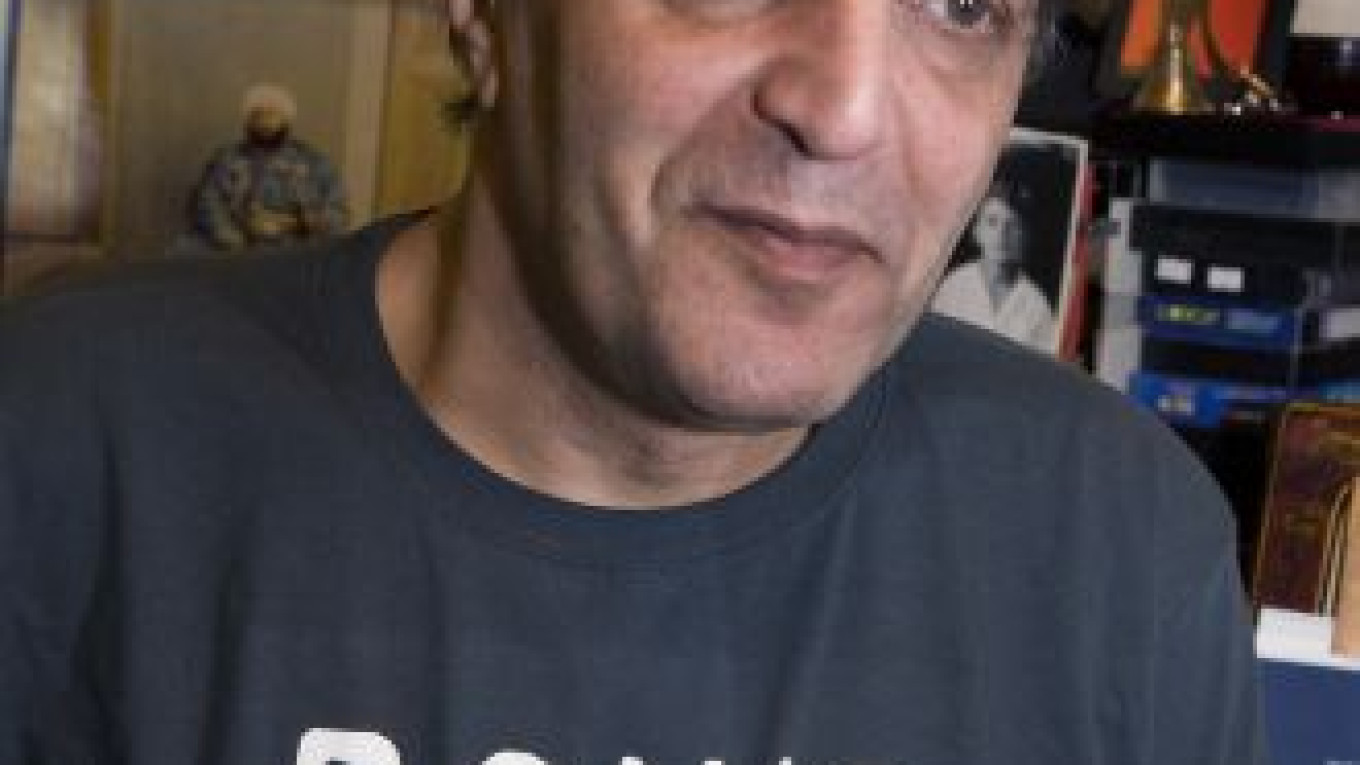David Sarkisyan, head of the Shchusev Architecture Museum and a figurehead for the preservationist movement in Moscow, died at the age of 62 on Jan. 7.
Funeral organizers wanted to bury Sarkisyan — born in Yerevan, Armenia — in the Armenian Cemetery, part of the Vagankovskoye Cemetery, not far from Belorusskaya metro station.
“He did so much for the city and made the museum famous around the world,” said Natalya Samover from preservation movement Archnadzor, “The city did not consider that worthy enough.”
The cemetery is full, but burials can take place there with the permission of the city or if the owner of a plot sells one. Georgy Garanyan, a famous Armenian jazz musician, was buried Thursday in the Armenian Cemetery.
Organizers, who include Deputy Culture Minister Pavel Khoroshilov, asked Deputy Mayor Vladimir Resin, acting mayor while Yury Luzhkov is on vacation, to give permission for the burial, but they were refused, despite the request being backed by the Armenian Church. Resin ranted about how Sarkisyan had held up progress in the city, one organizer alleged.
Sarkisyan was a vocal critic of the city’s construction policies, accusing them of barbarianism that put greed ahead of the city’s heritage.
Luzhkov was consulted about the decision, organizers alleged Resin said, and the burial was refused.
An appeal was made by the city’s chief architect, but the decision remained unchanged.
“He defended historical heritage, and Luzhkov was against David even after his death,” one of the organizers said. “He did not want to forgive him.”
They then raised more than $100,000 to buy a plot in the cemetery, but the city then specifically contacted the cemetery, ordering them not to allow the burial to take place.
“The director of the cemetery said that he got a very direct order not to allow the funeral to take place,” one organizer said.
Organizers spoke off the record because they feared that if their names were published they would face problems in the future.
A third organizer, architect Yury Grigoryan, confirmed that Sarkisyan would not be buried in the Armenian Cemetery but did not go into details, saying: “It is not a big issue. The important thing had been to save his life.”
Sarkisyan instead will now be buried Friday in the Troyekurovskoye Cemetery, where a number of Moscow’s most famous citizens, such as writer Vasily Grossman, are buried and which is located on the edge of the city.
Resin’s press service said the matter concerned his work as acting mayor rather than his work as head of the construction department and directed questions to the Moscow mayor’s press office. A secretary who answered the phone at the Moscow city press service said the press spokesman was on holiday and refused to connect or give a number for his deputy. She then hung up.
The Culture Ministry is helping organize the funeral, said Natalya Uvarova, a spokeswoman for the ministry, but she would not comment on whether or not the city had blocked the funeral. The ministry has arranged for the Kultura television channel to repeat an interview with Sarkisyan at 7 p.m. on the day of his funeral. Khoroshilov could not be contacted Thursday.
It was not lost on organizers that Sarkisyan, who made the museum a base for the grass-roots movement for preservation during his 10 years in charge, would have enjoyed the fact that city leaders were still dealing with him.
“He would be quite happy because even when he is dead they are still afraid of him,” an organizer said.
A Message from The Moscow Times:
Dear readers,
We are facing unprecedented challenges. Russia's Prosecutor General's Office has designated The Moscow Times as an "undesirable" organization, criminalizing our work and putting our staff at risk of prosecution. This follows our earlier unjust labeling as a "foreign agent."
These actions are direct attempts to silence independent journalism in Russia. The authorities claim our work "discredits the decisions of the Russian leadership." We see things differently: we strive to provide accurate, unbiased reporting on Russia.
We, the journalists of The Moscow Times, refuse to be silenced. But to continue our work, we need your help.
Your support, no matter how small, makes a world of difference. If you can, please support us monthly starting from just $2. It's quick to set up, and every contribution makes a significant impact.
By supporting The Moscow Times, you're defending open, independent journalism in the face of repression. Thank you for standing with us.
Remind me later.


